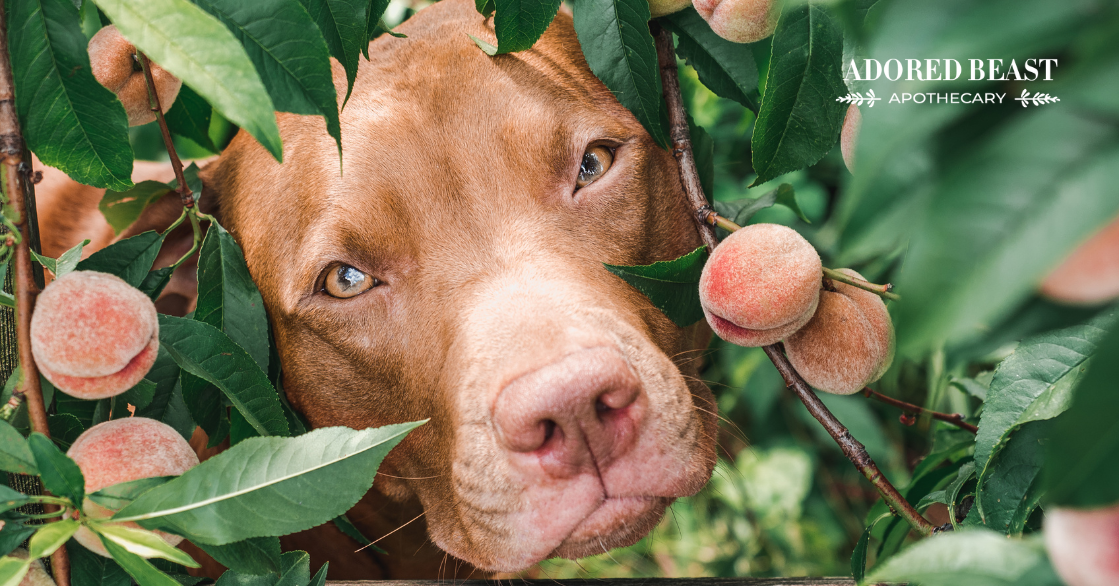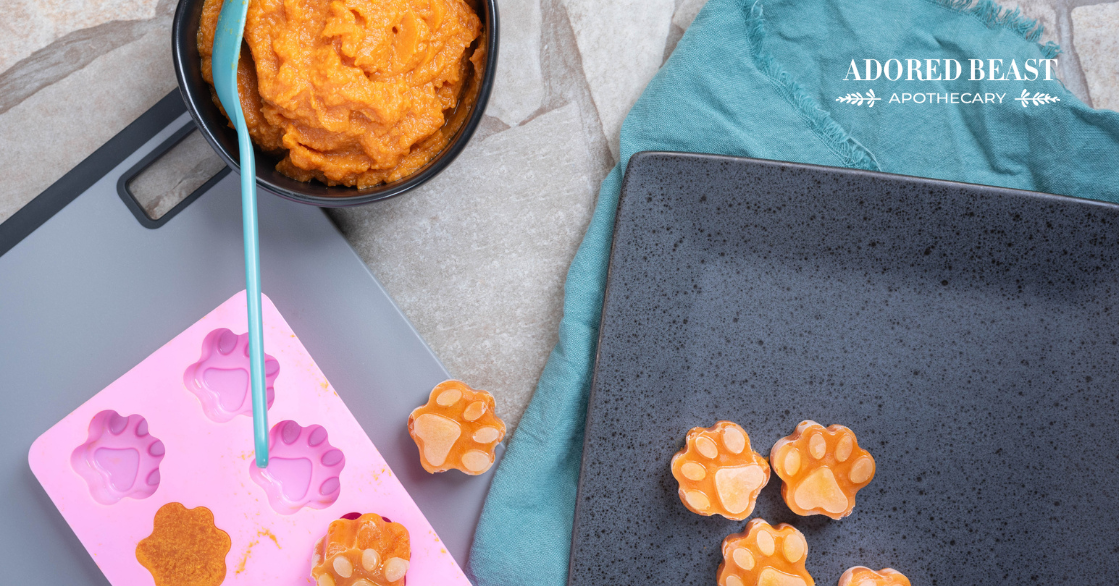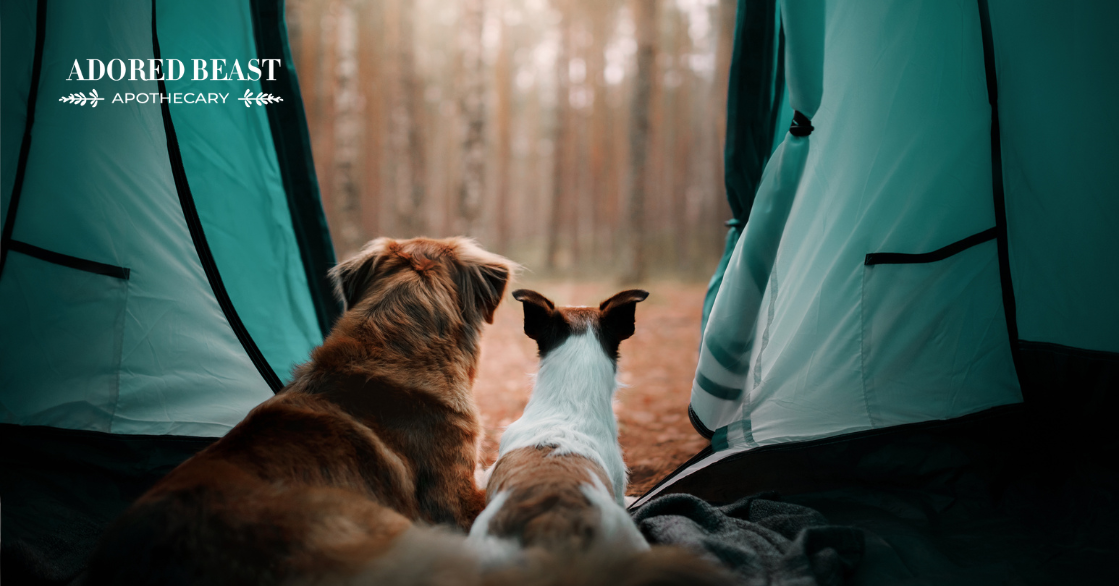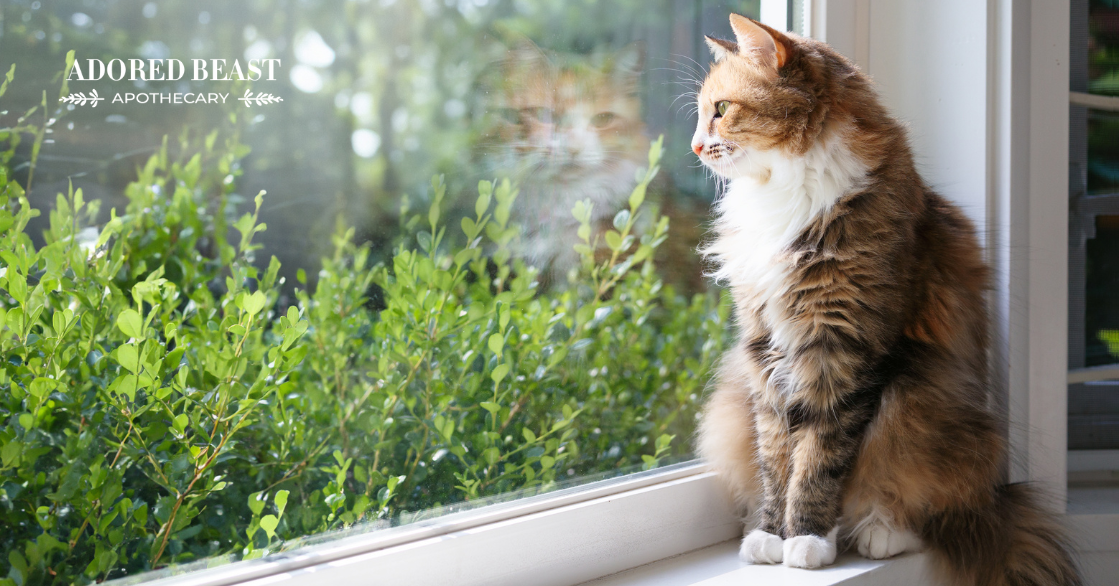As our dogs age, just as we age, their bodies change. Certain systems that functioned well in their younger years may not work as well as they get up in years.
And one of those systems is the urinary system.
Senior dog incontinence is relatively common in older dogs. And while it may be unpleasant, it’s important to remember that A) your dog can’t help it, and B) you can help support them.
What is Senior Dog Incontinence?
Incontinence can happen to any dog at any age. And incontinence means the same thing, whether we’re talking about a young dog or an older one. It’s the inability to fully control the bladder and/or bowels.
It’s not the same as a dog not being potty trained. When your dog is truly incontinent, accidents will happen without your dog realizing it until it’s too late.
Though both male and female dogs can suffer from incontinence, it is more common in female dogs. This is because, as female dogs age, their control of the neck of their bladder can deteriorate. Urine can all too easily leak out when the exit of the bladder is not fully closed.
There are several things you might notice if your dog is incontinent:
- Dribbling urine while standing or walking (not squatting first)
- Finding wet spots on your dog’s bed after they’ve been laying down or sleeping
- Dropping stool while standing or walking (not stopping or squatting to defecate)
- Finding poop on your dog’s bed after they’ve been laying down or sleeping
- Damp legs or bum
- A persistent smell of urine, either on your dog or round their bedding
- Scalding on the skin, from where your dog’s been in constant contact with urine
- An increased tendency to lick around the back end
Some older dogs may not be able to hold their urine or feces as long compared to when they were younger, so letting them out more often is a good idea.
Causes of Incontinence in Older Dogs
Several different things can lead to the development of senior dog incontinence, and it’s important to explore each one to determine the best course of action. Sometimes a health condition can be the cause, and it’s essential to check on these when you notice leaking occurring:
1. Urinary Tract Infections
The most common health-related cause of urinary accidents is a urinary tract infection. Urinary issues can also result from bladder stones or tumors. It’s a good idea to schedule an appointment with your roster veterinarian. Bring a sample of clean urine (the first of the day) with you.
To get a urine sample, take a stainless steel soup ladle that has gone through a dishwasher and try to collect the first urine of the morning, mid-stream. Put the urine into a sterilized container and put it in the fridge right way, then take it to your veterinarian (do not leave it in the fridge longer than 8 hours).
To support the bladder, we also recommend our Easy Peesy Protocol. It helps support the body’s defence against recurring bladder and urinary infections. It supports bladder health and the creation of an environment that discourages crystal formation.
[RELATED] The Dreaded Cat or Dog UTI: The Bladder Needs Love Too!
2. Kidney Disease
Urinary tract infections and other urinary issues may be related to kidney disease, especially in older dogs. Dogs with kidney disease tend to drink more water and thus urinate more. All of this can be difficult for a senior dog to handle, causing inappropriate urination.
With kidney disease, there is so much you can do by switching to a whole food diet and working with a qualified animal homeopath.
3. Spinal Problems
Problems with the spine can lead to nerve issues that cause incontinence. Dogs with intervertebral disc disease or traumatic spinal injuries can develop incontinence. The first course of action is to find a really good animal chiropractor or osteopath, as often these integrative therapies can work wonders. A quality joint support can also be very beneficial. Medical or surgical treatment are options, but are not always successful. If the nerve damage is bad enough and you do decide to take the surgical route, make 100% sure that you are working with a board certified surgeon with many, many specific spinal surgeries under their belt. Again, in this case, you can work with your veterinarian to get referrals to chiropractic osteopathy or a surgeon for the best course of action.
4. Arthritis
Arthritis is a common problem in older dogs, and since it can affect mobility it might make it harder for them to get up and get out or to get in the right position to relieve themselves. They might be holding it because of this. Then, when they can’t hold it any longer, they have an accident.
We recommend a whole food diet and supplements, along with things like swimming and rehab. There are so many great ways top support arthritis, for example homeopathy (our Jump for JOYnts is great), omega 3s, and species specific pre and probiotics all work to decrease inflammation and support healthy joints.
5. Dementia
Doggie dementia, also called canine cognitive dysfunction, is fairly common in older dogs. You may notice that your dog seems confused about certain things, more anxious than normal, or that they wander a lot, particularly at night. One of the earlier signs of dementia is “forgetting” training, such as house training. And the confusion can sometimes lead to accidents inside.
6. Other Brain Conditions
Other problems in the brain can also affect a dog’s ability to control their bladder and/or bowels. This may be a brain tumor or infection that has damaged the part of the brain linked to this. It is important to discuss this with your veterinarian to determine if other symptoms suggest this might be the cause.
7. Spay Incontinence
This one isn’t specific to senior dog incontinence, but rather can happen to dogs at any age. After spay or neuter, the reduction of sex hormones, predominately estrogen and testosterone, can cause a decrease in muscle strength of the urethral sphincter. This allows urine to dribble out, or sometimes you’ll even see a full-on emptying of the bladder.
Spay incontinence can come on slowly. For example, you may notice more grooming in the genital area, little dribbles as they are going up the stairs, or small wet spots when they get up from resting. This can eventually progress to a full emptying of their bladder as they sleep.
Julie recommends a homeopathic remedy in 30C potency, made from the organs they have lost (canine teste or ovary) to help their body better compensate for the loss of those hormones, raw food so their protein level is high enough. Homeopathic phosphoric acid 200C can help with the spinal nerves in the back as well. You can give them organs like ovary, testes, uterus, or glandulars because you are trying to strengthen their sphincter.
Helping a Senior Dog and Supporting Bladder Health
If your dog is incontinent, and you’ve ruled out a medical cause, and it’s just an inability to control their bladder, there are many ways you can deal with the situation.
Firstly – and most importantly – remember that it’s not their fault. Your dog is not doing this on purpose, so the most important advice we can give is to never scold your senior dog for having an accident. This will just cause them stress and confusion, which can sometimes make the problem even worse. Be compassionate!
- Increase the frequency of walks and potty breaks. Take your dog out immediately after eating, drinking, and waking up. Treat potty breaks with your senior dog just as you would with a puppy.
- Use waterproof covers on beds and other places your dog sleeps.
- Consider doggie diapers, particularly at night (and remember to change them frequently to avoid skin irritation).
- Wipe down or rinse your dog’s backend regularly to keep the ear clean and consider trimming the hair in the area.
You also want to be sure you’re doing everything you can to support the health of the bladder. This is important for older dogs with incontinence and senior dogs in general!
- Make sure your dog is getting enough moisture in their diet. The urinary system depends on hydration to operate correctly. A great place to start when improving your dog’s hydration is actually their food. Adding extra water to their food is a good place to start. If you feed raw, there’s a lot of moisture in that, but if you feed kibble or dehydrated food, there won’t be. A good way is to soak your kibble with a high quality bone broth.
- Herbs and nutraceuticals can also help support the bladder and urinary tracts: Cranberry (to increase acidity), slippery elm and marshmallow root (to help keep things moist and soft, and not inflamed), homeopathic remedies berberis and hydrangea (to help support the dissolution of crystals and kidney health), and N-Acetylglucosamine (NAG) (to decrease inflammation of the lining of the urethra and the bladder walls) are all useful.
- Amino acids. Amino acids help in many ways. They build muscle, make hormones and brain chemicals, they grow and repair bodily tissue, help to break down food, support the immune system, are a great energy source, and help to support normal digestion. Our go-to here is phytoplankton. It has an incredibly diverse amino acid profile.
If your senior dog starts to leak, remember, it’s not their fault. Be patient, and help support bladder health any way you can. Senior dog incontinence can just be a natural part of the aging process, so always treat them with the respect and love they deserve.












